Adam Driver Quotes & Sayings (Page 10)
Adam Driver quotes and sayings page 10 (42 year old actor). Here's quote # 91 through 100 out of the 101 we have for him.
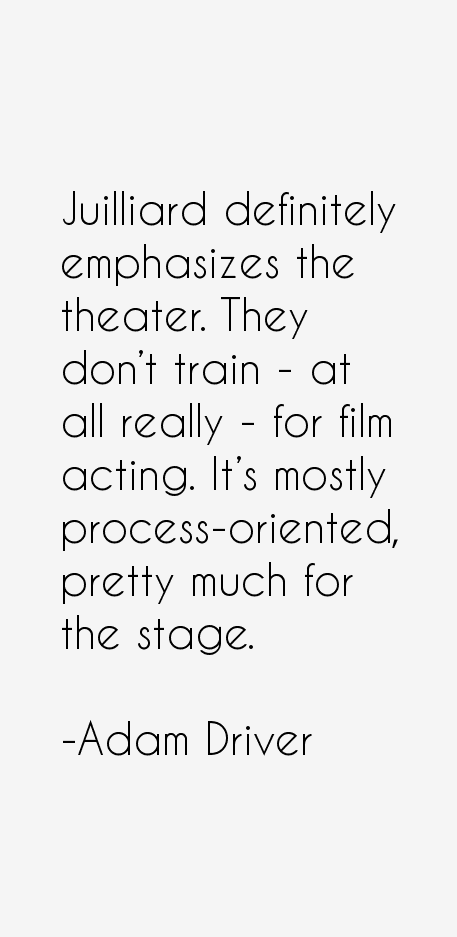
“Juilliard definitely emphasizes the theater. They don't train - at all really - for film acting. It's mostly process-oriented, pretty much for the stage.”
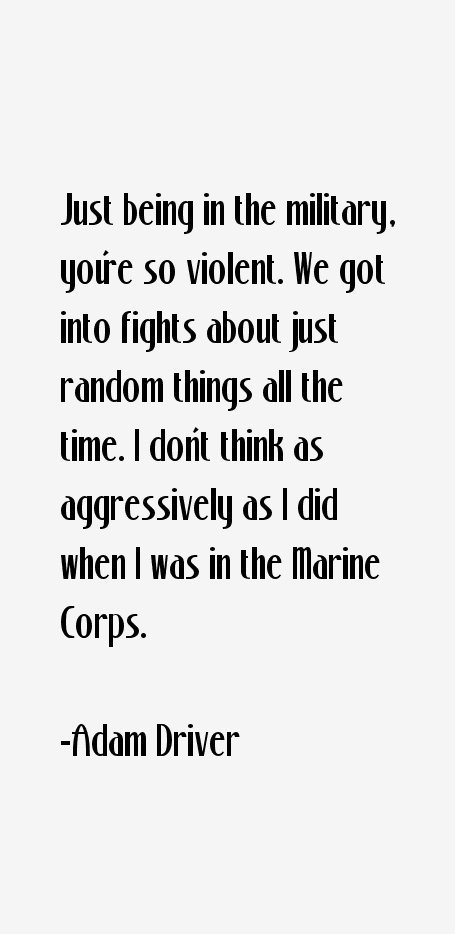
“Just being in the military, you're so violent. We got into fights about just random things all the time. I don't think as aggressively as I did when I was in the Marine Corps.”
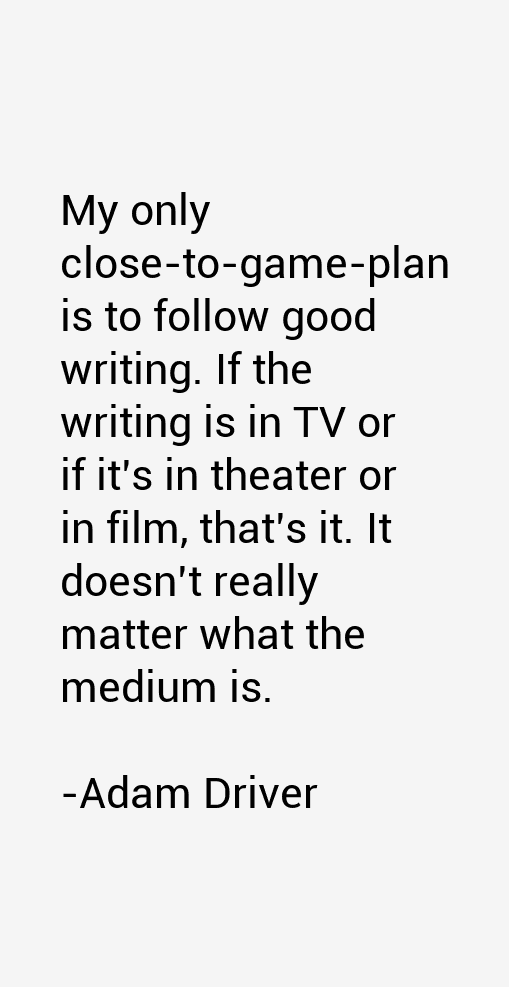
“My only close-to-game-plan is to follow good writing. If the writing is in TV or if it's in theater or in film, that's it. It doesn't really matter what the medium is.”
“My wife changes the way that I dress. She makes me dress nicer than I want to dress. I feel like I perpetually dress like a 14-year-old boy, and she makes me stand up straight and wear clean clothes.”
“The first job I got was this TV job in this show called 'The Unusuals.' Then I did a play called 'Slipping,' and at the same time I was rehearsing another play at Playwrights Horizons, and that kind of snowballed into a bunch of plays.”
“The Marine Corps is some of the best acting training you could have. Having that responsibility for people's lives, suddenly time becomes a really valuable commodity and you want to make the most of it. And for acting, you just have to do the work, just keep doing it.”
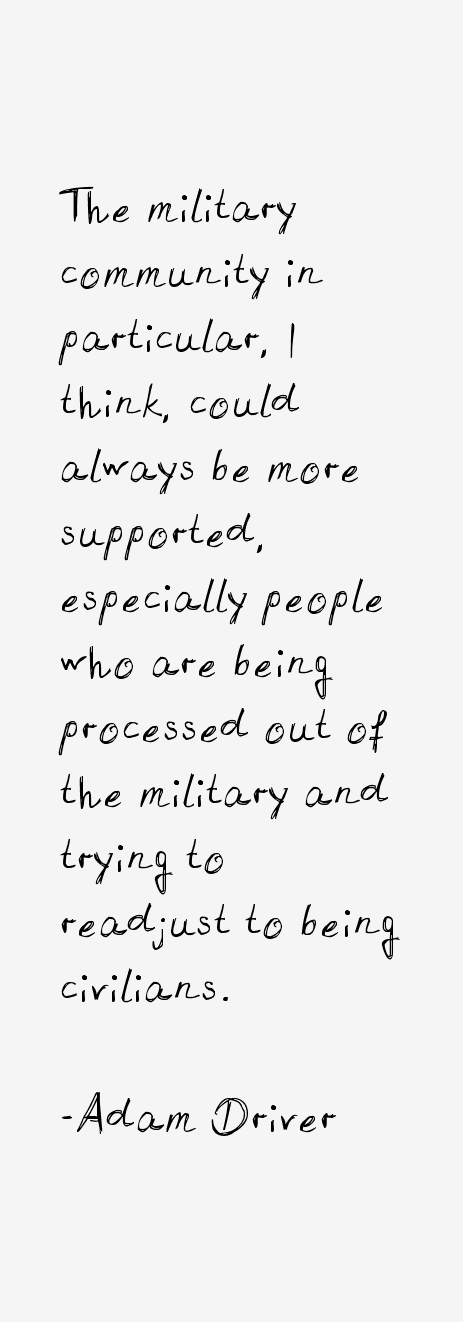
“The military community in particular, I think, could always be more supported, especially people who are being processed out of the military and trying to readjust to being civilians.”
“There's so much emphasis on Daniel Day-Lewis and his process, which is appropriately his own. But I was just blown away by his generosity as an actor. He's so giving as an actor that he just naturally commands the focus on set.”
“We don't understand why we're here, no one's giving us an answer, religion is vague, your parents can't help because they're just people, and it's all terrible, and there's no meaning to anything.”
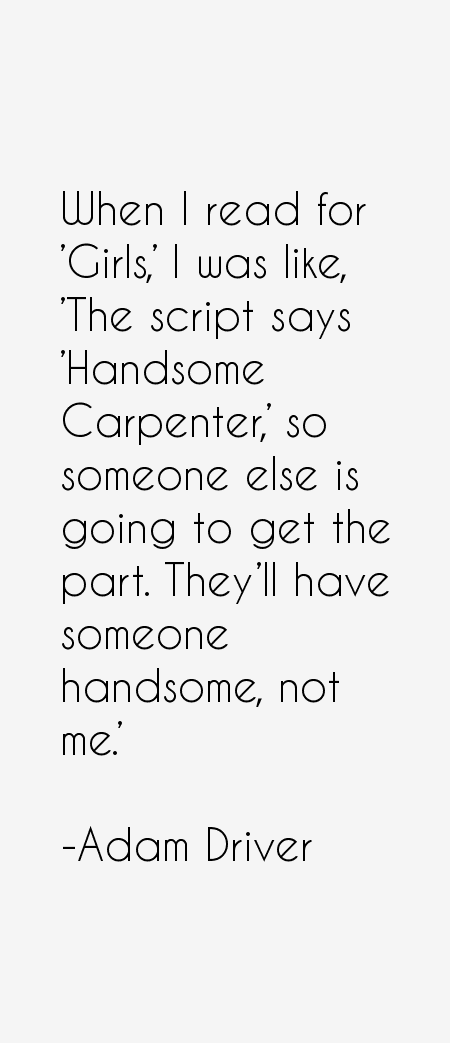
“When I read for 'Girls,' I was like, 'The script says 'Handsome Carpenter,' so someone else is going to get the part. They'll have someone handsome, not me.'”
Adam Driver Quotes Rating
No Ratings Yet
Leave A Comment
























